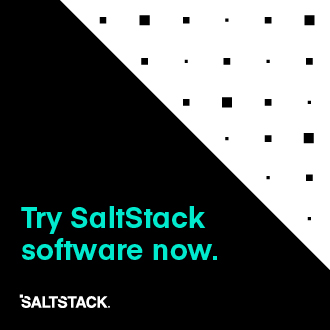salt.states.zone¶
Management of Solaris Zones
- maintainer
Jorge Schrauwen <sjorge@blackdot.be>
- maturity
new
- depends
salt.modules.zoneadm, salt.modules.zonecfg
- platform
solaris
New in version 2017.7.0.
Below are some examples of how to use this state. Lets start with creating a zone and installing it.
omipkg1_configuration:
zone.present:
- name: omipkg1
- brand: ipkg
- zonepath: /zones/omipkg1
- properties:
- autoboot: true
- ip-type: exclusive
- cpu-shares: 50
- resources:
- attr:
- name: owner
- value: Jorge Schrauwen
- type: string
- attr:
- name: description
- value: OmniOS ipkg zone for testing
- type: string
- capped-memory:
- physical: 64M
omipkg1_installation:
zone.installed:
- name: omipkg1
- require:
- zone: omipkg1_configuration
omipkg1_running:
zone.booted:
- name: omipkg1
- require:
- zone: omipkg1_installation
A zone without network access is not very useful. We could update the zone.present state in the example above to add a network interface or we could use a separate state for this.
omipkg1_network:
zone.resource_present:
- name: omipkg1
- resource_type: net
- resource_selector_property: mac-addr
- resource_selector_value: "02:08:20:a2:a3:10"
- physical: znic1
- require:
- zone: omipkg1_configuration
Since this is a single tenant system having the owner attribute is pointless. Let's remove that attribute.
Note
The following state run the omipkg1_configuration state will add it again! If the entire configuration is managed it would be better to add resource_prune and optionally the resource_selector_property properties to the resource.
omipkg1_strip_owner:
zone.resource_present:
- name: omipkg1
- resource_type: attr
- resource_selector_property: name
- resource_selector_value: owner
- require:
- zone: omipkg1_configuration
Let's bump the zone's CPU shares a bit.
Note
The following state run the omipkg1_configuration state will set it to 50 again. Update the entire zone configuration is managed you should update it there instead.
omipkg1_more_cpu:
zone.property_present:
- name: omipkg1
- property: cpu-shares
- value: 100
Or we can remove the limit altogether!
Note
The following state run the omipkg1_configuration state will set it to 50 again. Update the entire zone configuration is managed you should set the property to None (nothing after the :) instead.
omipkg1_no_cpu:
zone.property_absent:
- name: omipkg1
- property: cpu-shares
-
salt.states.zone.absent(name, uninstall=False)¶ Ensure a zone is absent
- namestring
name of the zone
- uninstallboolean
when true, uninstall instead of detaching the zone first.
-
salt.states.zone.attached(name, force=False)¶ Ensure zone is attached
- namestring
name of the zone
- forceboolean
force attach the zone
-
salt.states.zone.booted(name, single=False)¶ Ensure zone is booted
- namestring
name of the zone
- singleboolean
boot in single usermode
-
salt.states.zone.detached(name)¶ Ensure zone is detached
- namestring
name of the zone
-
salt.states.zone.export(name, path, replace=False)¶ Export a zones configuration
- namestring
name of the zone
- pathstring
path of file to export too.
- replaceboolean
replace the file if it exists
-
salt.states.zone.halted(name, graceful=True)¶ Ensure zone is halted
- namestring
name of the zone
- gracefulboolean
use shutdown instead of halt if true
-
salt.states.zone.import_(name, path, mode='import', nodataset=False, brand_opts=None)¶ Import a zones configuration
- namestring
name of the zone
- pathstring
path of the configuration file to import
- modestring
either import, install, or attach
- nodatasetboolean
do not create a ZFS file system
- brand_optsboolean
brand specific options to pass
Note
The mode argument can be set to
import,install, orattach.import: will only import the configurationinstall: will import and then try to install the zoneattach: will import and then try to attach of the zoneomipkg1: zone.import: - path: /foo/bar/baz
-
salt.states.zone.installed(name, nodataset=False, brand_opts=None)¶ Ensure zone is installed
- namestring
name of the zone
- nodatasetboolean
do not create a ZFS file system
- brand_optsboolean
brand specific options to pass
-
salt.states.zone.present(name, brand, zonepath, properties=None, resources=None)¶ Ensure a zone with certain properties and resources
- namestring
name of the zone
- brandstring
brand of the zone
- zonepathstring
path of the zone
- propertieslist of key-value pairs
dict of properties
- resourceslist of key-value pairs
dict of resources
Note
If the zone does not exist it will not be installed. You can use the
`zone.installed`state for this.Note
- Default resource selectors:
fs: dir
net: mac-addr
device: match
rctl: name
attr: name
dataset: name
admin: user
Warning
Properties and resource will not be removed when they are absent from the state!
For properties, simple set them to
`None`.For resources, add the
`resource_prune`property and set it to`True`. Also specify the`resource_selector_property`if the default is not the one you want.
-
salt.states.zone.property_absent(name, property)¶ Ensure property is absent
- namestring
name of the zone
- propertystring
name of property
Note
This does a zoneacfg clear call. So the property may be reset to a default value! Does has the side effect of always having to be called.
-
salt.states.zone.property_present(name, property, value)¶ Ensure property has a certain value
- namestring
name of the zone
- propertystring
name of property
- valuestring
value of property
-
salt.states.zone.resource_absent(name, resource_type, resource_selector_property, resource_selector_value)¶ Ensure resource is absent
- namestring
name of the zone
- resource_typestring
type of resource
- resource_selector_propertystring
unique resource identifier
- resource_selector_valuestring
value for resource selection
Warning
Both resource_selector_property and resource_selector_value must be provided, some properties like
`name`are already reserved by salt in there states.Note
You can set both resource_selector_property and resource_selector_value to None for resources that do not require them.
-
salt.states.zone.resource_present(name, resource_type, resource_selector_property, resource_selector_value, **kwargs)¶ Ensure resource exists with provided properties
- namestring
name of the zone
- resource_typestring
type of resource
- resource_selector_propertystring
unique resource identifier
- resource_selector_valuestring
value for resource selection
- kwargsstring|int|...
resource properties
Warning
Both resource_selector_property and resource_selector_value must be provided, some properties like
nameare already reserved by salt in states.Note
You can set both resource_selector_property and resource_selector_value to None for resources that do not require them.
-
salt.states.zone.uninstalled(name)¶ Ensure zone is uninstalled
- namestring
name of the zone

